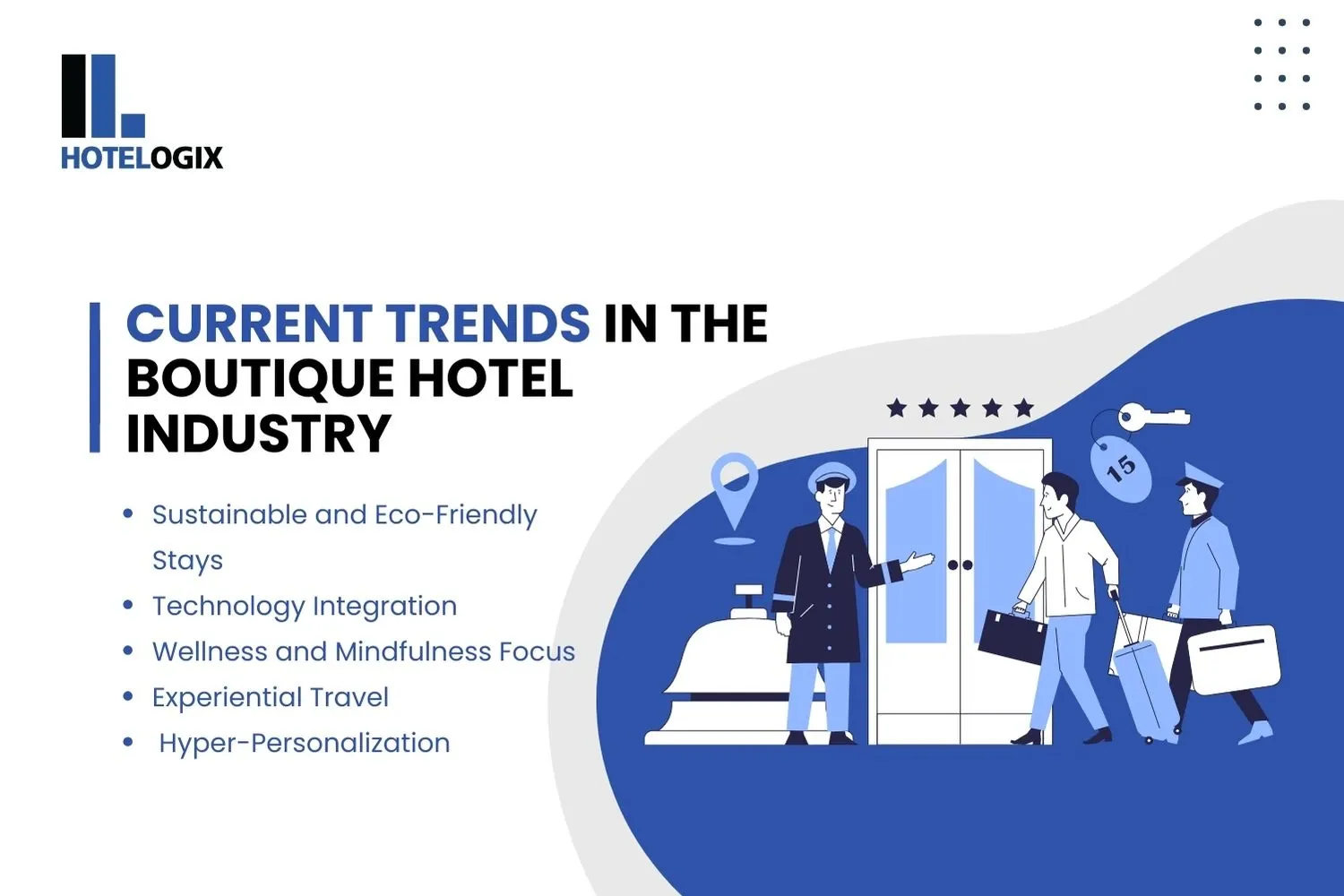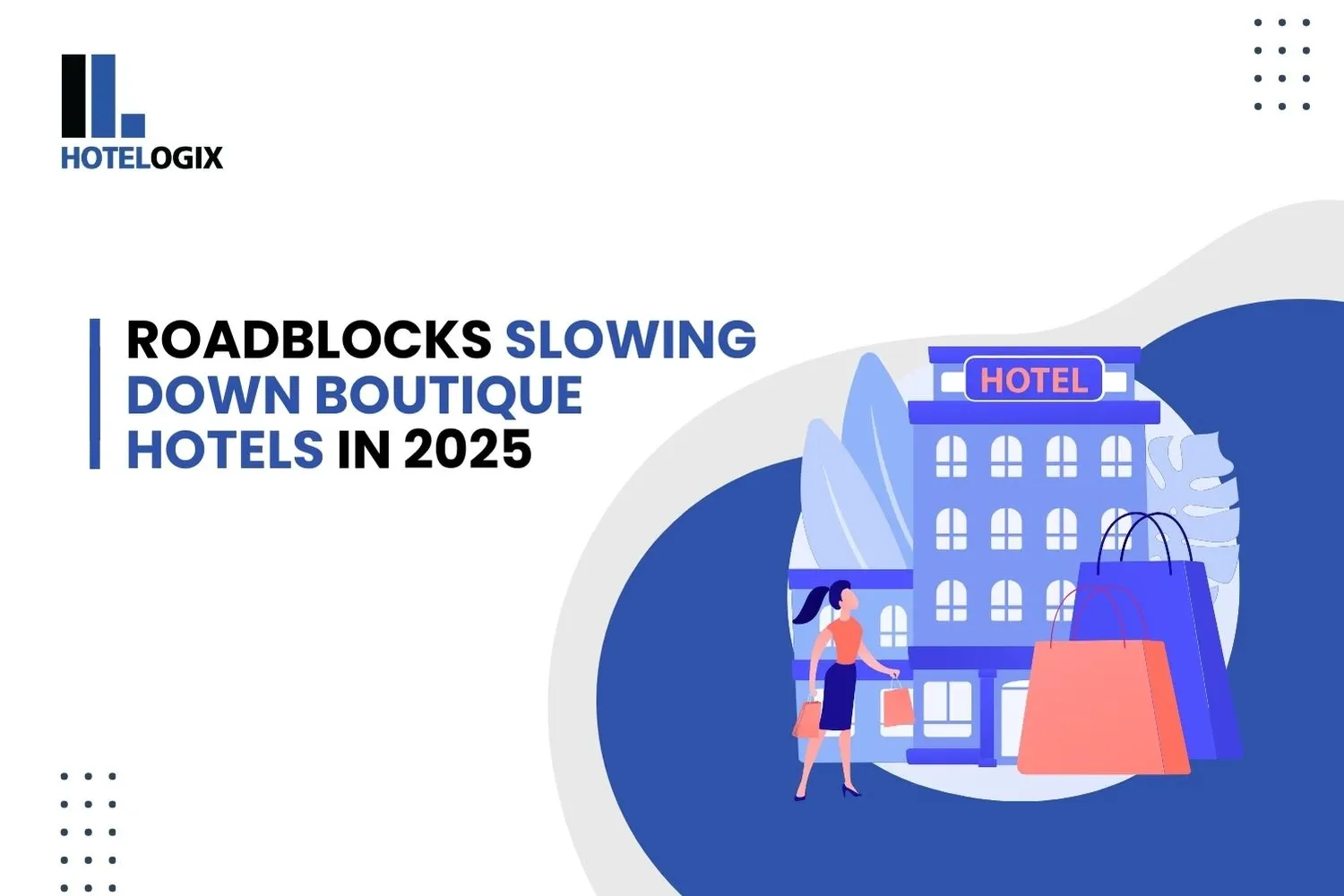For any hotelier, there’s that sinking feeling: empty rooms at the end of the day. But what if you could turn those last-minute vacancies into an opportunity? Let’s break down why these trends are game-changers and how they can help your boutique hotel stay ahead.
Boutique hotels are independent properties that offer an unparalleled level of luxury and intimacy to guests. Unlike large hotel chains, these hotels focus on providing unique, personalized experiences that prioritize guest comfort above all else. However, in striving to offer something distinct, boutique hotels face unique challenges that can impact their sustainability and growth.
Roadblocks Slowing Down Boutique Hotels in 2025
Key Challenges Faced by Boutique Hotels
1. Financing Limitations
One of the most significant hurdles boutique hotels face is securing financing. Investors and lenders often prefer backing branded hotel chains as they are easier to underwrite and have a proven track record. Boutique properties may struggle to obtain funding, especially when there are no comparable properties at a similar price point to establish a market baseline.
Fact: According to a 2025 industry report, boutique hotels require an average of 20-30% more capital per room compared to branded hotels due to their unique design and personalized hotel amenities.
2. Global Distribution System (GDS) Accessibility
Large hotel chains benefit from strong global branding and wide accessibility through Global Distribution Systems (GDS). In contrast, boutique hotels often lack the same level of access to these booking platforms, making it challenging to reach a broader audience. Without the right channel mix and distribution strategy, these hotels may find it difficult to attract and retain guests.
3. Staffing and Service Excellence
Since boutique hotels emphasize personalized experiences, staff training and service quality become paramount. Every staff member must be well-trained to cater to guests’ individual needs, ensuring exceptional attention to detail. Unlike large hotel chains, where standardized service models apply, boutique hotels rely on personalized service, which requires ongoing training and hands-on management from hotel owners.
Fact: Luxury hospitality is suffering from inconsistent service, even at top-tier properties. Daniel Langer, CEO of EQUITE, states, “I’m flabbergasted by how many disappointing experiences I’ve had—even in hotels charging $1,000 or $2,000 per night.”
How Hotelogix Can Help Boutique Hotels Overcome Challenges
- Seamless GDS Integration: Hotelogix enables boutique hotels to expand their reach by connecting them to major Global Distribution Systems, allowing them to compete with larger chains.
- Automated Staff Training & Management: The system offers intuitive workflows that simplify staff training, ensuring a consistent and high-quality guest experience.
- Data-Driven Insights for Better Decision Making: Hotelogix provides comprehensive reporting and analytics, helping boutique hotels optimize pricing, staffing, and marketing strategies to enhance profitability.
- Mobile & Contactless Solutions: With mobile check-ins, real-time inventory management, and guest self-service portals, boutique hotels can elevate service quality while improving operational efficiency.
By leveraging Hotelogix, boutique hotels can enhance their market position, optimize revenue streams, and provide seamless guest experiences without the need for extensive resources.
Competitive Edge of Boutique Hotels
Despite these challenges, boutique hotels hold several advantages over large chains:
- Flexibility and Adaptability: Unlike large hotel chains bound by corporate policies, boutique hotels can quickly adapt their offerings, services, and marketing strategies to meet evolving guest preferences.
- Personalized Guest Experience: With fewer rooms and a more intimate setting, boutique hotels can offer tailored services that foster stronger connections with guests.
- Authentic and Thematic Experiences: Many boutique hotels are built around unique themes, architectural styles, or cultural influences, making them appealing to niche travelers looking for immersive experiences.
Fact: In 2025, 72% of travelers prefer unique, local experiences over traditional tourist activities, making boutique hotels with strong local connections increasingly attractive.
Current Trends in the Boutique Hotel Industry
With changing traveler preferences, boutique hotels are evolving to stay relevant and competitive. Some emerging trends include:

1. Sustainable and Eco-Friendly Stays
Guests are increasingly looking for eco-conscious accommodations. Many boutique hotels are incorporating sustainable practices such as solar energy, zero-waste initiatives, and locally sourced materials.
Fact: A 2025 travel trends report indicates that 65% of travelers are more likely to book accommodations if they know the property is implementing sustainable practices.
Case Study: Six Senses Zil Pasyon, Seychelles - Six Senses, known for its dedication to sustainability, showcases eco-conscious design, organic gardens, and solar-powered energy at their Zil Pasyon resort in Seychelles. This level of commitment is becoming more common in the industry as hotels embrace carbon-neutral practices, zero-waste initiatives, and locally sourced materials.
2. Technology Integration
Smart room controls, AI-powered concierge services, and mobile check-ins are becoming essential in boutique hotel operations to enhance guest convenience.
Fact: According to Atit Jariwala, CEO of Bridgeton, “By the end of 2025, many boutique hotels will have a fairly seamless way to offer personalized concierge services to guests who can book events, dinners, and other experiences frictionlessly.”
Case Study: YOTELYOTEL has been at the forefront of blending technology with convenience. Their automated check-in kiosks, keyless room entry, and robotic luggage storage systems make for a highly tech-driven experience.
3. Wellness and Mindfulness Focus
Wellness has long been a key focus for the hospitality industry, but in 2025, it’s about taking a holistic approach that nurtures both the body and the mind. Hotels are increasingly offering wellness-focused retreats, mindfulness activities, and personalized experiences that promote mental well-being.
Fact: Daniel Langer, CEO of EQUITE, states, “Boutique hotels need to think about wellness as a fully integrated experience rather than an amenity. Personalized, deeply engaging well-being experiences tailored to each guest’s needs will become the norm.”
4. Experiential Travel
Travelers are now seeking authentic experiences rather than just accommodation. Boutique hotels that offer curated experiences such as local culinary tours, adventure activities, and cultural immersions are gaining popularity.
Case Study: Arctic TreeHouse Hotel, Rovaniemi, FinlandThis unique hotel offers guests the opportunity to watch the Northern Lights from the comfort of their futuristic suites, creating an unforgettable experience that blends adventure with luxury.
5. Hyper-Personalization
With the rise of big data, hotels are now able to offer highly personalized experiences. From adjusting room temperature and selecting pillow types to curating bespoke welcome amenities, hotels are using data to make every stay unique and tailored to individual preferences.
Fact: Maya Mallick, Hotelier & Creative Director at The Culver Hotel, emphasizes, “Hyper-personalization is the key to boutique hospitality. This means going beyond a welcome drink—hotels should anticipate guests’ needs and preferences before check-in.”
Conclusion
While boutique hotels face stiff competition from large chains and operational challenges such as financing, GDS access, and staffing, they remain well-positioned to thrive. By leveraging their ability to provide unique, personalized experiences and quickly adapt to industry trends, boutique hotels can carve out a strong niche in the hospitality sector. The rising demand for intimate, concept-driven stays further reinforces the potential for boutique hotels to grow in an increasingly competitive market.
Get practical. One last-minute deal goes beyond mere price cutting; it’s a strategy. Now, what if you could turn those last-minute vacancies into an opportunity?
As we look ahead to 2025, the boutique hotel industry is poised for exciting transformations. From sustainability initiatives to AI-powered personalization, the future of hospitality promises to be more innovative, immersive, and tailored to individual guest preferences than ever before. By embracing these trends and leveraging the unique strengths of boutique properties, hoteliers can create unforgettable experiences that keep guests coming back for more.




